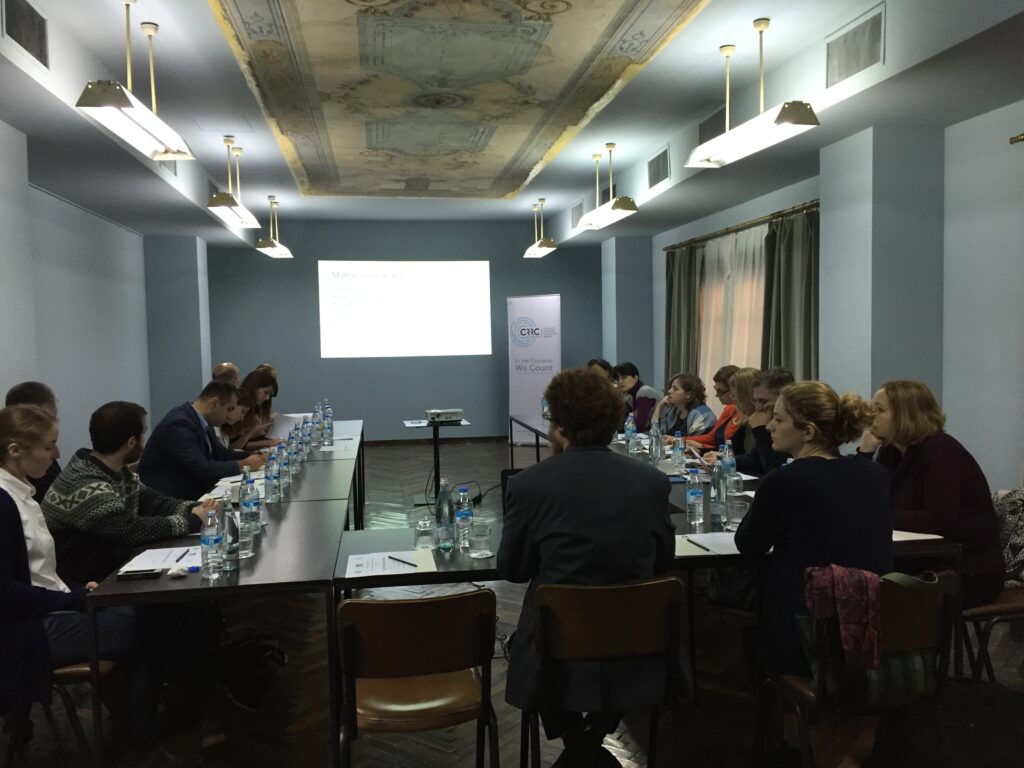In order to help monitor the fidelity of the October 2016 parliamentary election results, CRRC-Georgia carried out quantitative analysis of election-related statistics using methods from the field of election forensics. On October 13, 2016 a round table was organized to introduce the “Preliminary Analysis of 2016 Parliamentary Election Results”. CRRC-Georgia’s Policy Analyst, Dustin Gilbreath presented findings of preliminary analysis, including challenges identified and recommendations developed in response to the challenges.
The round table participants included representatives of the Central Election Commission (CEC), National Democratic Institute (NDI), Transparency International (TI), International Foundation for Electoral Systems (IFES), Georgian Young Lawyer’s Association (GYLA) and academics.
Overall, CRRC-Georgia found that official electoral statistics exhibit the same number of statistical anomalies as in 2012. Considering the fact that elections in 2012 were assessed as free and fair, we concluded that the 2016 elections were also free and fair.
Although, Georgia has made significant progress over time in the quality of its election procedures, one recurrent issue is related to the recording of the vote. The logical checks of the official election returns suggest that the CEC, DECs, and PECs have significant room for improvement in their recording of the vote.
Two main logical inconsistencies identified include:
- More votes and invalid ballots than the number of voters who came to the polls (which is more a serious problem, than the other one)
- Less votes and invalid ballots than the number of voters who came to the polls;
Recommendations included standardizing the protocol entry process, as sometimes handwriting is extremely difficult to read; Digitizing the voting process, though possibly creating electronic voting booths, or electronic protocol entries, which in fact is more cost-effective; Increasing transparency of the vote counting process; Improving the CEC’s elections portal; and Immediately flagging and investigating illogical protocols.
The study is being implemented under the auspices of the Detecting Election Fraud through Data Analysis (DEFDA) project funded by the US Embassy in Georgia. The views expressed in the study are CRRC-Georgia’s alone and do not reflect the views of the United States Government, United States Embassy in Georgia, or any related entity.
The project’s final report is forthcoming.


















